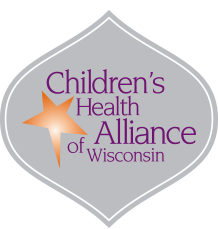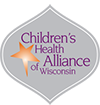Children and youth with special health care needs (CYSHCN) and their families are impacted by a variety of psychosocial factors that can influence their long term health and well-being. This may include stable housing, safe neighborhoods, healthy food, living wage jobs, and quality education. Inadequate housing is associated with a poor quality of life, affects academic achievement and may be linked with an increase in hospitalizations. Food insecurity also impacts families, with an average of 20.6% of Wisconsin children lacking consistent access to food in 2016.¹ These family stressors can increase the risk of co-occurring mental health concerns in some children.
Psychosocial protective factors include supportive and stable relationships and increased social support for caregivers. These have been associated with decreased distress for children. Fully supporting and partnering with families involves the development of community-based, coordinated systems of care. This approach includes families, community, health care providers and schools focused on building the strengths and identifying needs of children, youth and families. A medical home is one setting that can conduct ongoing surveillance and screening of psychosocial factors.
This report from the American Academy of Pediatrics2 provides guidance for providers to address psychosocial risk and protective factors and coordinate care that can have a positive influence on overall health, wellness, and quality of life of CYSHCN and their families.
1 Feeding America. Data and Research. Accessed on December 30, 2018 from https://www.feedingwi.org/data___research/food_insecurity_rates.php
2 Psychosocial Factors in Children and Youth With Special Health Care Needs and Their Families. Gerri Mattson, Dennis Z. Kuo, COMMITTEE ON PSYCHOSOCIAL ASPECTS OF CHILD AND FAMILY HEALTH, COUNCIL ON CHILDREN WITH DISABILITIES. Pediatrics Dec 2018, e20183171; DOI: 10.1542/peds.2018-3171 http://pediatrics.aappublications.org/content/early/2018/12/13/peds.2018-3171

